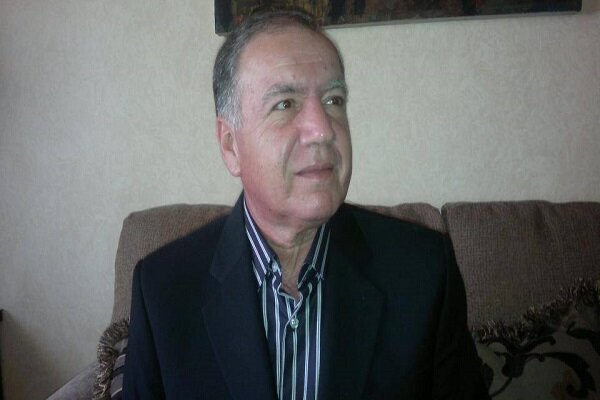Saudi Arabia behind coup attempt in Jordan: Palestinian analyst

TEHRAN – A Palestinian author believes that Saudi Arabia and the UAE had a key role in the coup attempt in Jordan.
“In the official statement of the Jordanian government, there is a reference to the intervention of foreign intelligence without specifying them,” Shaker Zalloum tells the Tehran Times.
“I think it is most likely to be a coup attempt behind which Saudi Arabia and the UAE play a key role,” he comments.
Jordanian authorities on Saturday arrested as many as 20 people and sought to restrain the movement of a former crown prince amid what officials called a threat to the “security and stability” of the country.
Prince Hamzah bin Hussein, the eldest son of the late King Hussein and his American-born fourth wife, Queen Noor, was told to remain at his Amman palace amid an investigation into an alleged plot to unseat his older half-brother, King Abdullah II, according to a senior Middle Eastern intelligence official briefed on the events.
The Saudi connections of two detained male associates of Prince Hamzah have sparked questions about Riyadh’s relationship with Amman.
Here is the text of the interview with Shaker Zalloum about Saudi’s role in Joran developments:
Q: How do you read the recent developments in Jordan? Was there really a coup attempt?
A: There is no smoke without fire, so I think it is most likely to be a coup attempt behind which Saudi Arabia and the UAE play a key role. Bassem Awadallah is one of Mohammed bin Salman’s advisers. In the official statement of the Jordanian government, there is a reference to the intervention of foreign intelligence without specifying them, however the Jordanian government indicated the date of the coup operation.
It is early to judge; the details are coming and what is being reported in popular circles through social media is in this course.
The Saudi connections of two detained male associates of Prince Hamzah have sparked questions about Riyadh’s relationship with Amman. Q: What are the relationships of those arrested with Saudi Arabia?
A: In answer to the question, I should point out that Sharif Hassan bin Zaid is a Jordanian citizen who holds Saudi citizenship in addition to his Jordanian nationality, and he resides in Saudi Arabia while few people know him in Jordan. As for Bassem Awadallah, his history is black in practice, as he is one of the leaders of corruption in Jordan and the region.
Q: Can the recent events be linked to Israel and its allies among the Persian Gulf states in order to change the balance of power in the region?
A: Changing the balance of power will not be done by replacing a government with another, as it is affected by the strength of the axis of resistance, whether positively or negatively.
There is no difference between crimes committed by the Israeli intelligence service and what Saudi, Emirati, and Bahraini intelligence services plan.
Q: How do you see the position of Saudi Arabia and Bahrain towards the Palestinian cause?
A: The attitudes of the regimes follow subordination policy to the American-Zionist camp have become obvious even to the simple Arab citizen in Jordan and in most Arab countries. What happened in terms of normalization of ties with Israel and Israelization of Persian Gulf regimes revealed the malicious nature of these regimes, and their intentions became evident.
These independent regimes were established according to specific job tasks to serve the colonial West and the Zionist ambitions in Palestine, when Britain declared its Hebrew Kingdom of Saudi Arabia in 1932 Churchill wired to Chaim Weizmann congratulating him on the accomplishment of half of the promised state of "Israel". As for the delusive independence for the rest of the Persian Gulf states, it came in the same context.
With regard to Bahrain and the Zionist Al Khalifa, no less than the hardline Zionists inside "Israel".
Indeed, their cooperation with the Zionists is old, and what has appeared to the public in terms of recent normalization of ties does not go beyond the precedent illegitimate relationships.
These regimes claim advocating Arabs and Islam, while they are neither a Muslim nor Arab.
Q: What are the implications of the possible revival of the nuclear agreement for West Asia and the Islamic world at large?
A: A revival of the nuclear agreement, according to the conditions set by the Leader of the Islamic Revolution Ayatollah Seyyed Ali Khamenei, reflect positively on Iran and the rest of the parties of the resistance axis in the region; this axis is like an integrated body. Strength of Iran means reinforcement of the resistance axis and vice versa.
The same applies to Syria and the anti-arrogance and anti-Zionist resistance factions in Palestine and Iraq.
Iran's victory is a victory for all the countries and peoples of the Islamic world.
Leave a Comment